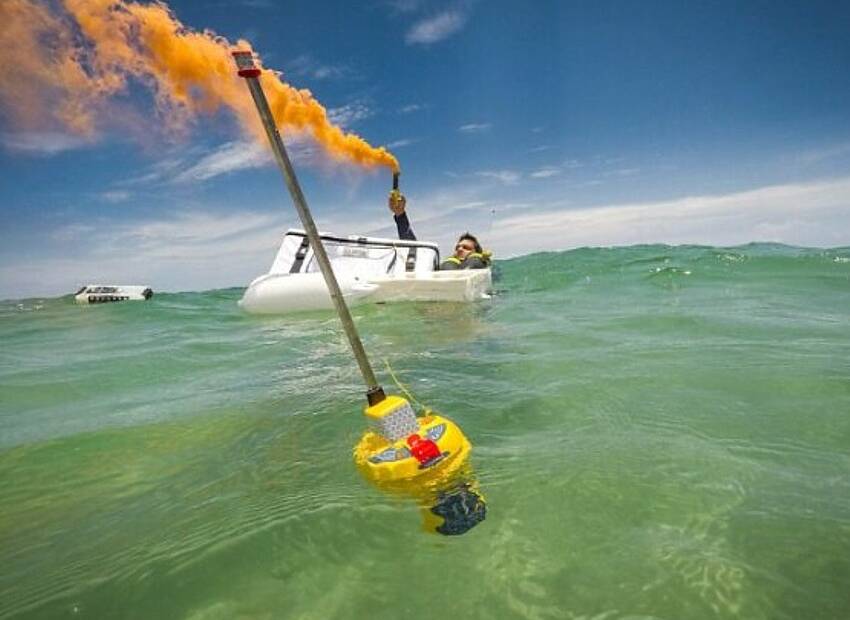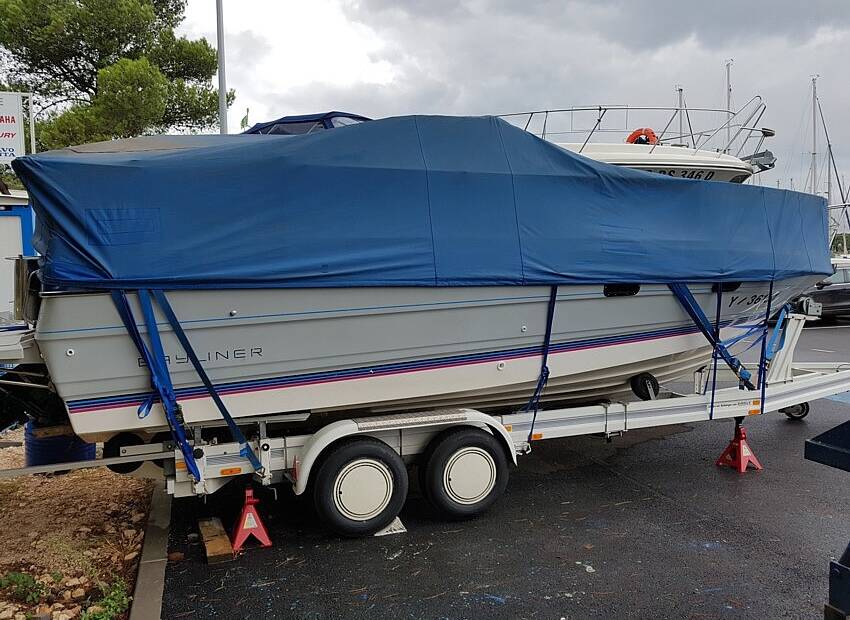Your sailing crew or partner will look to you
for their safety and well being. So what steps...
can you take on or off sailing season...
to prepare you for the challenges that lie ahead?
These five golden rules will help you reach that goal.
If you are anything like me, one of the toughest decisions to make seems to be the "go; no go" one. That final call every sailing skipper needs to make before casting off. Your sailing crew or partner will look to you for their safety and well being.
So how can you make that final call in a calm, confident manner? Put these five golden rules to the test today to help you meet the sailing challenges tomorrow--wherever in the world you choose to sail!
1~ Prepare to the Max
Put yourself into a "what-if" mode of thought. Start at the bow and work aft. Could your anchor use another lashing (stopper) to keep it in place? Does the deck stowed dinghy or raft need extra bungee or lashings? When was the last time you checked the chafe on each block and tackle, such as the traveler control lines, mainsheet, boom vang.
This becomes more critical as the weather deteriorates. Use this process underway and at anchor. Keep on top of little problems so that they don't become big ones.
2 ~ Learn Three New Things Each Day
Learn at least three new things every day. On or off season. Read the writings of the masters. Take your pick from the likes of Chichester, Moitessier, Slocum. Roth, Chapman, Rousmaniere, Calder, Henderson, Hancock, Toss, Vigor, and so many more.
These are guys that have "been there - done that". If you force yourself into this "3-a-day" discipline, you will find that your range of knowledge will exceed your wildest expectations.
These three new things don't need to be complex things that involve hours of study. Something as simple as discovery of a new idea, sailing skill tip or technique can meet this objective fast and easy in just a matter of minutes!
Oh--and write, too! Put your thoughts and ideas on paper or computer. Keep a log. One reason that your humble author does this is for this very reason. Writers are learning addicts. It's good for the soul and exercises your brain muscle.
3 ~ Practice, Practice, Practice
How many of us sailors have bent on that storm jib or trysail, hoisted it and sailed with it? Or hove to, just to check out how our boat behaves in different conditions?
Or gone through drills like man overboard, reefing, or flooding emergency with the sailing crew the first day of the coastal or offshore cruise? Practice drills produce an automatic response under trying conditions. That's the main reason that military services have drill after drill.
There's nothing familiar about the sea to human beings. We are land creatures. It makes sense that we practice techniques like sail reefing or how to tie a marine knot over and over again.
Once these become second nature, you move on to the next step on the learning ladder. As multi-time circumnavigator Hal Roth said about sailing: "You can pick up the fundamentals quickly, but half a lifetime is scarcely enough to perfect your techniques."
4 ~ Be the First to Set the Example
Be the first aboard to wear a knife and lanyard. Or to put on the pfd when the weather turns foul. Or to don the sailing harness and clip on to the jack line.
Remember, your sailing crew will often hesitate out of fear of how they will look in the eyes of their peers.
Silly as it sounds, we all sometimes want to be the last to get the sailing gear on. Always keep in mind that your crew will look to you to show them the way. Your actions will speak a lot louder than your words.
5 ~ Look to the Weather
Few persons look to the heavens more than once or twice a day. Yet, clouds give the first clues of marine weather to come. Clouds can tell you whether to expect a strong or weak sea breeze or give you the first sign of a frontal system headed your way.
No forecaster inside a building can see what you can see--at your specific location at that moment in time.
Puffy, cotton-ball cumulus might thicken and lower into cumulonimbus thunderheads in the afternoon to bring vicious squalls and thunderstorms.
Combine clouds and wind direction with a barometer, and you will often be able to forecast weather with better accuracy than a NOAA broadcast.
Be on the lookout for wind shifts or a change in the sea-wave direction. The more you understand marine weather, the better prepared you will be to make that final "go; no go" call for sailing safety.
~~~~~~~~~~~~~~~~~~~~
"When you are on board, carry a sharp knife and know how to use it blindfolded and hanging upside down."
-- Practical Sailor Magazine
Follow these five sailing tips from some of the world's wisest, most experienced sailors. You will build confidence and knowledge and gain the wisdom to make the right call to keep your sailing crew safe and sound.
Get instant access to 400+ sailing articles, videos, live discussion forums, and free ebooks! Click here to find out more!
Captain John






















